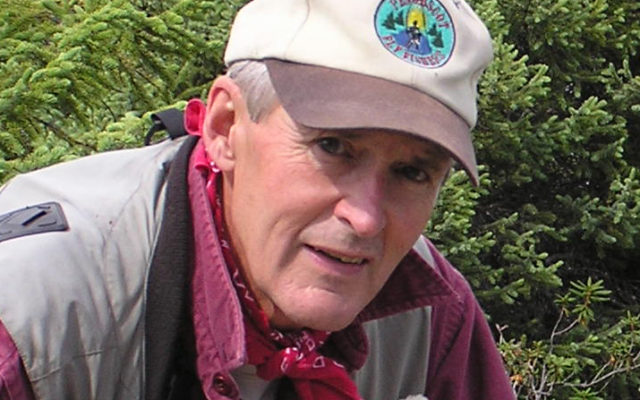
The hunter: Endangered species?
By V. Paul Reynolds
A number of years ago, in the 1990s, a highly regarded rural sociologist from Wisconsin, Professor Emeritus Tom Heberlein, predicted that the American hunter was headed for extinction. His prediction sparked a national debate in hunting circles, fired up the anti-hunting element, and was the subject of newspaper cartoons likening the hunter to a cultural dinosaur by the year 2050.
Heberlein, an avid deer hunter himself, spent this past fall at his deer camp, put nothing on his game pole and passed away in a Wisconsin hospital in early January at the age of 78. He was regarded as a pioneer in human dimensions research. He regularly studied the American hunter, hunting demographics, and hunters’ attitudes and behaviors.
All of us who care about and place value on the hunting legacy, wonder and worry about the future of recreational hunting. And we glance at the statistics every once in a while looking for a glimpse into the future.
What is going on out there? We know that on the national level an increasing number of women have taken up recreational hunting. Here in Maine some rod and gun clubs are undertaking programs to introduce youngsters to the challenges and enjoyment of recreational hunting.
Nationally, the downward trend in licensed hunters dates back to 1987. In Vermont, 90,000 licenses were sold that year. Fewer than 50,000 were sold in 2017. A Vermont fish and wildlife spokesman said, “We expect this trend to kind of continue. Changes in Vermont’s hunter population reflect those in its general population, particularly increased urbanization and rural flight. Hunting is a rural pastime, and when you have demographic issues like we do in Vermont, it’s no surprise that hunting participation, hunting numbers are declining.”
In New Hampshire, the peak was 1988 when the number of hunting licenses sold in the state hit 97,000, following years of growth that paralleled the state’s population rise. The figure fell steadily, dropping below 50,000 in 2017 but seems to have risen and leveled off in the past few years.
The sentiment in both New Hampshire and Vermont seems to be that the decline in hunting license sales, though it may have leveled some, will, over the long haul, continue.
“As the baby boomers age, license sales will continue to decline no matter how much effort we put into recruitment,” noted a 2017 budget report from the Vermont Fish and Wildlife Department.
What about Maine, a historically robust deer hunting state? The news is somewhat of a statistical anomaly, as the good professor might observe, and not altogether bad. In 2002, there were 211,238 licensed hunters; 20 years later, in 2022, Maine reported 233,443 licensed hunters!
Mark Latti, communication officer for the Maine Department of Inland Fisheries and Wildlife, says, about license sales, “We dipped a bit with the recession and bad winters in the 2008-10 period, but otherwise it has been a slow increase over that 20 year period. We are actually at the highest number of licensed hunters since 1982.”
Worth repeating, despite the national downward trend in hunting license sales, Maine has the highest number of licensed hunters since 1982!
The significance of this should not be overlooked, especially if there is in our midst another Tom Heberlein in the wings, a rural sociologist with an abiding curiosity in the realm of hunting demographics. The anomaly is ripe for a more in-depth examination.
Obviously, when it comes to safeguarding, and even nurturing, Maine’s hunting legacy, we in the Pine Tree State are doing something right.
We need to learn more.
The author is editor of the Northwoods Sporting Journal. He is also a Maine Guide and host of a weekly radio program “Maine Outdoors” heard Sundays at 7 p.m. on The Voice of Maine News-Talk Network. He has authored three books. Online purchase information is available at www.sportingjournal.com.